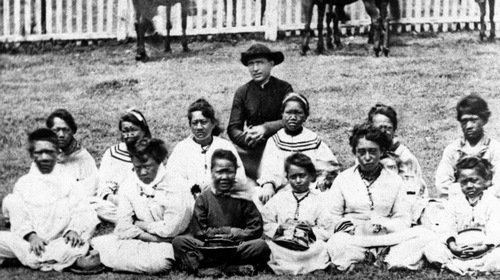
On February 4th, World Day focuses on two health problems: Cancer and PI
World Cancer Day is the one singular initiative under which the entire world can unite together in the fight against the global cancer epidemic. It takes place every year on 4 February. World Cancer Day aims to save millions of preventable deaths each year by raising awareness and education about cancer, and pressing governments and individuals across the world to take action against the disease.
UICC (Union for International Cancer Control) continues to expand on the success and impact of the day and is committed to ensuring that year-on-year the event is seen and heard by more people around the world. We do this through working directly with our members to develop a campaign that serves their differing organisational priorities; this is achieved through a two-pronged strategic approach:
UICC provides support through the development of tools and guidance to encourage its member organisations to run local cancer awareness campaigns that are aligned and adapted to the global World Cancer Day message. On an above-country level, we work to secure and support digital, traditional and social media opportunities to raise public awareness of the day. Through the continued support of our membership and key partners, World Cancer Day is beginning to firmly cement itself in calendars across the world.
To learn more about World Cancer Day, please visit the World Cancer Day website.
Source: Text & Image: UICC

Primary immunodeficiency diseases (PI) are a group of more than 250 rare, chronic disorders in which part of the body’s immune system is missing or functions improperly. While not contagious, these diseases are caused by hereditary or genetic defects, and, although some disorders present at birth or in early childhood, the disorders can affect anyone, regardless of age or gender. Some affect a single part of the immune system; others may affect one or more components of the system.
And while the diseases may differ, they all share one common feature: each results from a defect in one of the functions of the body’s normal immune system. Because one of the most important functions of the normal immune system is to protect us against infection, patients with PI commonly have an increased susceptibility to infection.
The infections may be in the skin, the sinuses, the throat, the ears, the lungs, the brain or spinal cord, or in the urinary or intestinal tracts, and the increased vulnerability to infection may include repeated infections, infections that won’t clear up or unusually severe infections. People with PI live their entire lives more susceptible to infections–enduring recurrent health problems and often developing serious and debilitating illnesses. Fortunately, with proper medical care, many patients live full and independent lives.
Many physicians are taught, when you hear hoofbeats, think horses, not zebras, and focus on the likeliest possibilities to make a diagnosis. However, physicians need to look for the unusual to detect patients with PI.
Source: Text & Image: IDF website
Today, we think of all those who are struggling with cancer, their loved ones, and the medical personnel for whom this multi-faceted disease is a constant challenge.
We remember as well those for whom PI is a very personal condition.
 Pope John Paul II initiated the day in 1992 to encourage people to pray for those who suffer from illness and for their caregivers. The Pope himself had been diagnosed with Parkinson’s a year before, in 1991, and it is considered that his own illness was impetus for his designation of the day.
Pope John Paul II initiated the day in 1992 to encourage people to pray for those who suffer from illness and for their caregivers. The Pope himself had been diagnosed with Parkinson’s a year before, in 1991, and it is considered that his own illness was impetus for his designation of the day.
 ASH WEDNESDAY – Hearing the words we may think : Already? And we go on thinking silently… Lent is there… It means: sacrifices, depriving one self of this and that, a bit… morbid? Gloomy?
ASH WEDNESDAY – Hearing the words we may think : Already? And we go on thinking silently… Lent is there… It means: sacrifices, depriving one self of this and that, a bit… morbid? Gloomy?







 On a picturesque peninsula of one of Hawaii’s smallest islands are the remnants of one of history’s most horrific medical sequesters. Kalaupapa, on the island of Molokai, is Hawaii’s leprosy colony, where 8,000 people were sent into exile over the course of a century. Six of these patients still live sequestered, out of the 16 total patients who are still alive. They range in age from 73 to 92.
On a picturesque peninsula of one of Hawaii’s smallest islands are the remnants of one of history’s most horrific medical sequesters. Kalaupapa, on the island of Molokai, is Hawaii’s leprosy colony, where 8,000 people were sent into exile over the course of a century. Six of these patients still live sequestered, out of the 16 total patients who are still alive. They range in age from 73 to 92.
 Sitting in the bus, I kept thinking about… ambitions. Good? Not so good?
Sitting in the bus, I kept thinking about… ambitions. Good? Not so good?